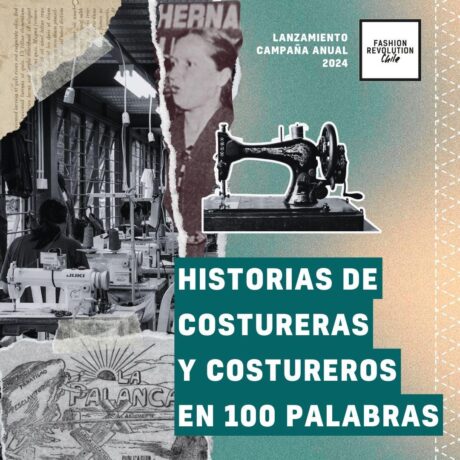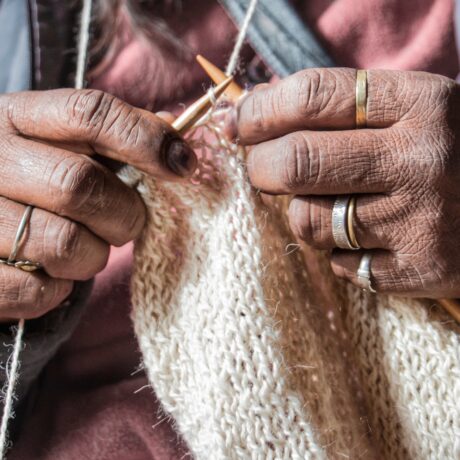Hidden
However much we know about history, it still strikes a visceral blow to think how previous generations actually lived with the acceptance of the transatlantic slave trade as a normal part of life. I was recently asked what it is that we live alongside now that will astound future generations. This is a good question to ponder as we mark in 2015 the European Year of Development, celebrating the commitment of people across the EU to play their part in tackling global poverty. For myself, I know the answer immediately: the conditions endured by those 15 million people who depend on small-scale and artisanal gold mining for their livelihoods.
Never in all my many years (and I am getting old) campaigning against injustice in global trade, have I felt such raw shock as when I met people in Tanzania mining and processing gold, that iconic symbol of power and wealth. Millions of artisanal and small-scale miners face daily hazards. Most national mining laws and regulations are geared towards large-scale industry, so these leave them unprotected. They earn so little that they can only meet their most basic needs, with no money left to invest in making the mines safe. This leaves them exposed to severe dangers, particularly as a result of daily contact with toxic chemicals, such as mercury, cyanide and nitric acid which can damage the brain and the nervous system, cause vomiting, gastroenteritis, kidney complaints and muscular tremors.
Searing poverty brings its own dangers. One East African miner told us how after she gave birth, she didn’t go to work in order to look after her baby. Soon food ran out. She had some gold ore and, as her husband was no longer around, she asked her 15 year old son to help. He had grown up around mining and he knew how to process the rocks and sell the gold so they could eat. He crushed the rocks by hand, put them through the mill to turn them into fine powder which he sluiced, mixing the heavier particles containing gold with mercury using his bare hands. This left him with a small ball of gold ‘amalgam’ – a gold and mercury mix – ready to sell. As he stood up, the ball of gold fell out of his hand and into the water reservoir next to the pit. In a panic he jumped in, forgetting he couldn’t swim. He drowned in front of his little brother.
Artisanal and small-scale mining is highly labour intensive, with low capital investment. These miners account for 10% of the world’s gold supply but 90% of the workforce in gold extraction. Fairtrade’s new report published on 14th January outlines how these miners are at the sharp end of a long, complex supply chain over which they have little control. Tracing gold is notoriously difficult and the gold industry has been slow to open its doors to scrutiny. This has made it virtually impossible for consumers to know under what conditions the gold in their jewellery was mined. That’s why we launched Fairtrade gold – to start the long, slow process of highlighting the problem and creating change. For the past four years we have been working with miners, chiefly in Peru Bolivia and Colombia. These groups have proved that, with training and investment, they can meet the strict standards needed to improve their working conditions and manage toxic chemicals. Their organisations receive a Fairtrade premium of $2,000 per kilo on top of the guaranteed minimum price they are paid for their gold, which goes towards improving their businesses or into community projects. There’s also an extra premium for those few groups who have managed to process gold without mercury or cyanide in recognition of the extra costs involved. We’ve been constantly refining how Fairtrade works in the gold sector. Next month we publish revised Fairtrade Standards, more closely aligned with international regulations around sourcing minerals from regions involved in conflict, in particular the OECD Guidance on Responsible Sourcing of Minerals from Conflict-Affected Areas. New EU rules, still being drafted, are likely to be voluntary, non-binding requirements for European companies that import so-called ‘conflict minerals’ (gold but also tin, tungsten and tantalum) to conduct enhanced due diligences on their supply chains and publicly report on their findings – modelled on the USA’s famous Dodd-Frank Act, but without that compulsory bite. It seems likely, therefore, that any European company working with Fairtrade will already be meeting the expectations of the EU rules with regards to due diligence checks and third-party reporting. Companies have the capacity to adapt to new requirements, but what’s vital is that any need for mining groups to change is accompanied by investment to help them to take those steps towards improvement. A grant from Comic Relief has enabled Fairtrade to work in East Africa for the past three years. This has enabled small-scale miners to get organised, register as legal operations, and improve their basic conditions.
Simon Odoyo from Lolgorian, a group working towards Fairtrade certification in Kenya, said: “When we learnt about Fairtrade we developed new methods. We have a group of registered members, we have a valid registration certificate, and a valid prospecting right. We now know how to make and keep our daily records, make the environment clean inside the pit and use safety gear including gloves and gumboots.” Dan Odiba from Micodepro in Kenya, added: “ Previously each and every miner worked on his own. Today we are privileged to do it collectively. We mine as a group; we process our ore together as a group; and we sell the same as a group.” Fairtrade is under no illusions as to the challenge we are taking on. Each small achievement in such a tough environment is its own triumph, and rightly celebrated by the miners. But we know supporting them to achieve real transformational change in an industry plagued with injustice and abuse is a long, hard journey. Fairtrade is here for the long haul. Ultimately, miners need traders willing to pay the extra costs. These are, in fact, no more than the true costs of mining. That is why we strongly encourage companies to buy as directly as possible from mining groups, paying those higher prices and accompanying them in the process of change.
This January, as the Year of Development gets underway, we have launched a campaign calling on people to buy Fairtrade gold, especially when they are getting married. Fairtrade has galvanised the public across Europe to create change in supermarket food aisles, stores and cafés: people understand that, by asking for Fairtrade and buying it, they are driving change cup of coffee by cup of coffee. Now we are bringing that same approach to the jewellery sector. So far, sales of Fairtrade gold are largest in the UK, with many cutting edge British jewellery designers such as Cred Jewellery, which has just announced a 44% increase in sales this Christmas or Ute Decker and Pippa Small. There are positive signs – the Fairtrade Foundation’s research shows that consumers believe buying jewellery for a special occasion would hold greater value and significance if it carried the FAIRTRADE Mark. Fairtrade gold is also available in many other countries, notably Switzerland (where most of the world’s gold is refined), and Luxembourg, where last year the Bank of Luxembourg issued special Fairtrade gold coins celebrating the country’s 175 years of independence. We need businesses to follow this lead. The more that do, the greater our hope of one day consigning these shocking, scandalous working conditions to history.












